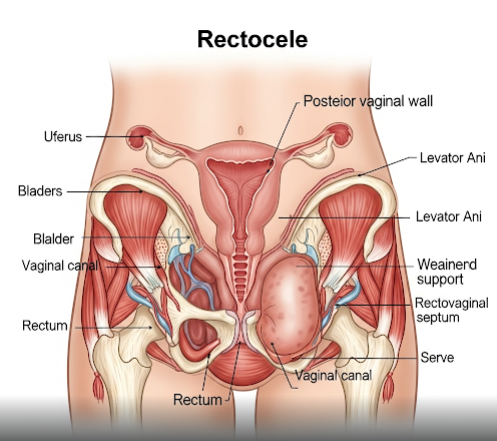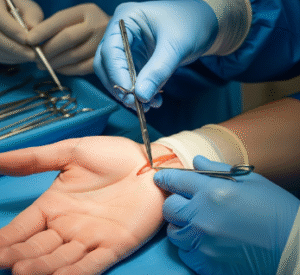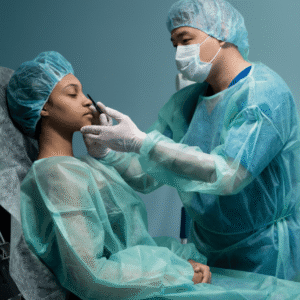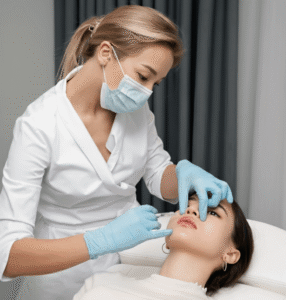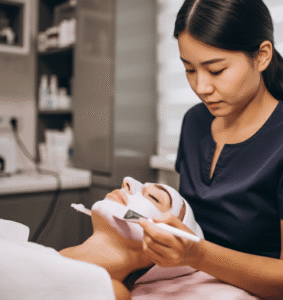Overview
Rectocele is a condition where the rectal wall protrudes into the vaginal wall due to weakening of the supporting tissues. It is a type of pelvic organ prolapse that primarily affects women and can cause discomfort and bowel difficulties.
What Is Rectocele?
Rectocele occurs when the rectovaginal septum—the tissue between the rectum and vagina—weakens or tears, allowing the rectum to bulge into the vagina. This can result from childbirth trauma, aging, or increased pelvic pressure.
Symptoms
- Feeling of a bulge or fullness in the vagina
- Difficulty with bowel movements or constipation
- Sensation of incomplete evacuation
- Need to press on the vaginal wall to help pass stool (splinting)
- Discomfort or pain during intercourse
- Lower back or pelvic pain
Causes
- Vaginal childbirth causing trauma to pelvic muscles and connective tissues
- Chronic constipation and straining during defecation
- Aging and menopause leading to decreased tissue elasticity
- Heavy lifting or chronic coughing increasing pelvic pressure
- Previous pelvic surgery
Risk Factors
- Multiple vaginal deliveries
- Age over 50 years
- Obesity
- Chronic constipation or straining
- Pelvic surgery history
- Connective tissue disorders
Complications
- Chronic constipation and difficulty with bowel movements
- Vaginal discomfort and sexual dysfunction
- Urinary incontinence or other pelvic organ prolapses
- Emotional distress and decreased quality of life
Prevention
- Pelvic floor strengthening exercises (Kegel exercises)
- Avoiding excessive straining during bowel movements
- Maintaining a healthy weight
- Managing chronic cough and respiratory conditions
- Proper lifting techniques
Treatment Options in Korea
Korea offers specialized care for rectocele including:
- Conservative Management: Pelvic floor physical therapy and biofeedback training.
- Pessary Devices: Vaginal inserts that provide support to the prolapsed area.
- Surgical Repair: Transvaginal or transanal approaches to reinforce the rectovaginal septum and repair defects.
- Lifestyle Counseling: Dietary modifications and bowel management to reduce straining.
- Advanced Diagnostics: Pelvic MRI and defecography to assess prolapse severity and plan treatment.
- Complementary Therapies: Traditional Korean medicine and acupuncture to support pelvic health.
Korean urogynecologists and colorectal surgeons collaborate to provide personalized treatment plans aimed at symptom relief and improving pelvic function.

